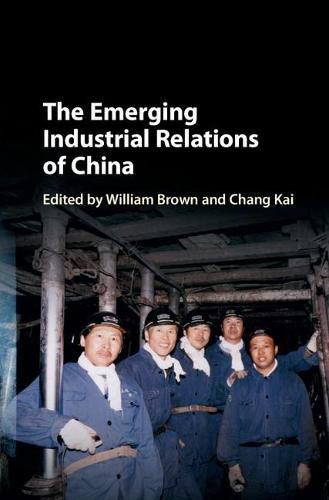Readings Newsletter
Become a Readings Member to make your shopping experience even easier.
Sign in or sign up for free!
You’re not far away from qualifying for FREE standard shipping within Australia
You’ve qualified for FREE standard shipping within Australia
The cart is loading…






Labour relations are at the heart of China’s extraordinary economic rise. This growth, accompanied by internal migration, urbanisation and rising income have brought a dramatic increase in the aspirations of workers, forcing the Chinese government to restructure its relationships with both employers and workers. In order to resolve disputes and manage workplace militancy, the once monolithic official trade union is becoming more flexible, internally. No longer able to rely on government support in dealing with worker unrest, employers are rapidly forming organisations of their own. In this book, a new generation of Chinese scholars provide analyses of six distinct aspects of these developments. They are set in the broader context by the leading authority on Chinese labour law and two western specialists in comparative labour relations. The result is a comprehensive study for scholars and graduate students working in Chinese industrial relations, comparative labour law, human resource management, NGOs and international labour organisations.
$9.00 standard shipping within Australia
FREE standard shipping within Australia for orders over $100.00
Express & International shipping calculated at checkout
Labour relations are at the heart of China’s extraordinary economic rise. This growth, accompanied by internal migration, urbanisation and rising income have brought a dramatic increase in the aspirations of workers, forcing the Chinese government to restructure its relationships with both employers and workers. In order to resolve disputes and manage workplace militancy, the once monolithic official trade union is becoming more flexible, internally. No longer able to rely on government support in dealing with worker unrest, employers are rapidly forming organisations of their own. In this book, a new generation of Chinese scholars provide analyses of six distinct aspects of these developments. They are set in the broader context by the leading authority on Chinese labour law and two western specialists in comparative labour relations. The result is a comprehensive study for scholars and graduate students working in Chinese industrial relations, comparative labour law, human resource management, NGOs and international labour organisations.